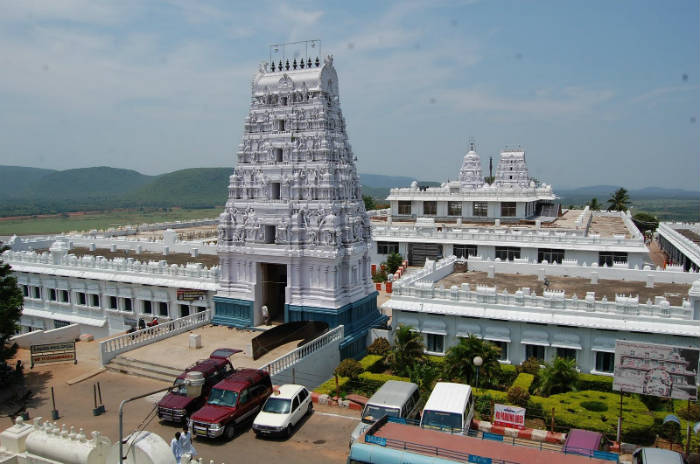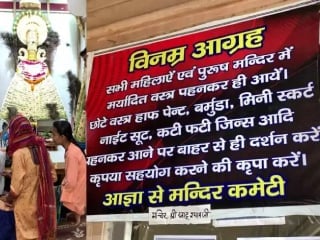
The Andhra Pradesh government has asked state officials to evict non-Hindu farmers from agricultural land belonging to Hindu temples or mutts. No such land can now be cultivated by a non-Hindu, it said. The state government had issued the official order in November last year but is now following up on it, as the kharif season is starting and land leases are being renewed.
“No person professing a religion other than Hinduism is entitled to obtain lease either through tender-cum-public auction or otherwise,” said the state government.
The Times Of India reports today (24 June) that the Andhra government began serving notices earlier this month to non-Hindu tenant farmers to immediately hand over the land belonging to temples and mutts.
Dalit Christian tenants could continue cultivating if they produced a certificate from the church declaring they aren’t Christians. The certificate has perhaps been made mandatory because in the state there are many Dalits, who have converted to Christianity but haven’t changed their names. So, this would ensure that their true number can be known.
Muslim farmers have no such respite. They have been barred altogether.
Temples in Andhra are large land owners. But since they are controlled by the government, land effectively belongs to the state. Around three lakh acres of land belongs to the temples and 30 percent of the farmers cultivating them are Dalits. The temple authorities have issued notices to all the non-Hindus to comply with the government notification.
Thousands of Dalits have been converted to Christianity since independence in Telangana and Andhra Pradesh, lured by the financial support. But for the last 40 years, the share of Christians in Andhra regions has seen a decline. Their population has reduced from around 15 lakhs in 1971 to marginally more than six lakhs in 2011, according to this report. However, the Dalit Christians may be misreporting themselves as scheduled caste Hindus in the census so they can continue enjoying the benefits of reservation.
It is hard to tell how much this new diktat by the TDP-BJP government will help in bringing back those converted Dalits but it’s certainly going to have some effect as farming continues to be the lifeline of the poor people.
In any case, this issue is bound to invite a lot of controversy from the usual suspects.
It is pertinent to note here that last year in June, the Andhra government had passed an order prohibiting temple lands from being sold or given on long lease to companies and individuals.
“No department will be allowed to send proposals for transfer, sale or alienation of any temple land either for any routine public purpose or for the purpose of giving it to a private party,” the government order had stated.
Additionally, those temples whose land has to be acquired for public purpose will be compensated and receive the government land (equivalent in value to the land being acquired) in exchange.
This directive by the state will put a leash on the bureaucrats who are always looking for the temple land to acquire for their department works.
Source : Swarajya Magazine

 Pakistan: Ancient Hindu temple in Khyber Pakhtunkhwa demolished for commercial complex
Pakistan: Ancient Hindu temple in Khyber Pakhtunkhwa demolished for commercial complex Bihar: Goddess Bhagavati Temple in Araria vandalised and deities damaged
Bihar: Goddess Bhagavati Temple in Araria vandalised and deities damaged Madhya Pradesh: ASI survey of Bhojshala complex in Dhar to start on March 22
Madhya Pradesh: ASI survey of Bhojshala complex in Dhar to start on March 22 Dress code guidelines enforced for visiting 73 temples in Pune district
Dress code guidelines enforced for visiting 73 temples in Pune district MP High Court allows ASI survey at ‘disputed’ Bhojshala complex in Dhar district
MP High Court allows ASI survey at ‘disputed’ Bhojshala complex in Dhar district Demands to allow worship on Mahashivratri in the Gharapuri caves near Mumbai
Demands to allow worship on Mahashivratri in the Gharapuri caves near Mumbai